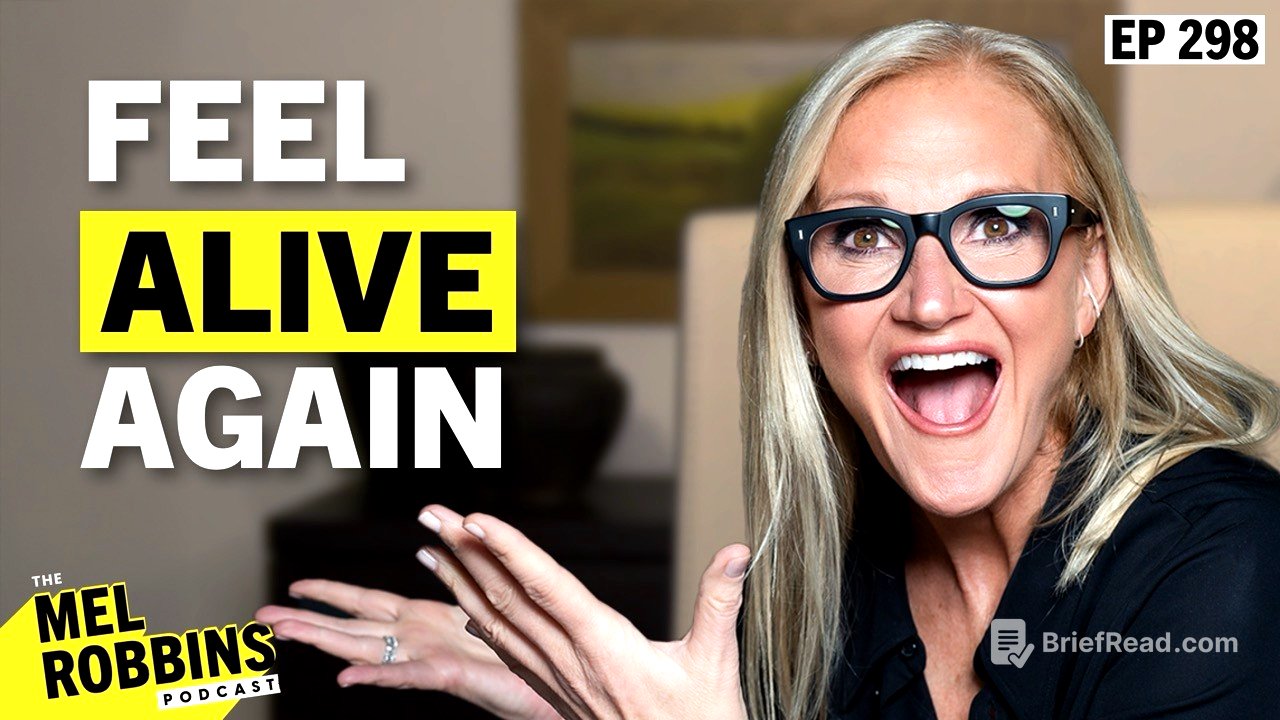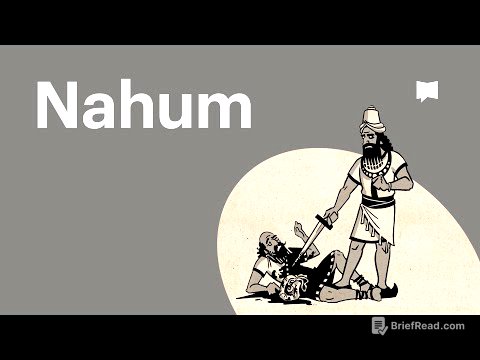TLDR;
Mel Robbins talks about simple habits to feel better when life feels overwhelming. She shares seven tiny, research-backed fixes that can shift your day, relationships, and sense of self. These include:
- Replaying good memories by looking at old photos.
- Turning your kitchen into a dance club.
- Learning and using people's names.
- Showing up for others.
- Celebrating others' wins.
- Being an "8-minute friend".
- Taking "awe walks" to appreciate the world around you.
Welcome [0:00]
Mel talks about how everyone's feeling a bit overwhelmed and lonely these days, and how life feels harder than it should. She says the solution isn't a big life change, but small, powerful habits. She's sharing seven tiny habits, backed by research, that she uses to feel better, and encourages listeners to remember that even small actions can make a big difference. She welcomes new listeners and acknowledges that those who were sent the podcast have people in their lives who care about their well-being.
Tiny Habit #1: Replay the Good Stuff [5:18]
Mel introduces the first tiny habit: replaying the good stuff by looking at old photos on your phone. Research shows that viewing photos of loved ones activates a sense of social support and reduces stress. A study by behavioral psychologist Joe Hemings found that looking at old photos is almost as relaxing as taking a bath. Dr. Ethan Cross, a psychologist at the University of Michigan, explains that looking at photos of loved ones activates a sense of support, speeding up recovery from distressing experiences. Mel shares her own experience of scrolling through photos from her cousin's wedding, which brought a smile to her face and reminded her of good memories. She encourages listeners to use their phones for good by looking at photos for 30 seconds to remember the moments that made them feel something.
Tiny Habit #2: Turn the Music on & Get Dancing [10:42]
Mel introduces the second tiny habit: turning your kitchen into a club by playing energetic music while doing chores. Music creates an instant mood boost and brings you into the present moment. Mel suggests playing Motown or disco, which gets everyone dancing. A study in the New England Journal of Medicine found that dancing reduces the risk of dementia more than any other physical activity. Dancing requires coordination, rhythm, memory, and social interaction, which stimulates neuroplasticity and keeps your brain sharp. It also reduces stress, increases serotonin, and activates the brain's reward centers. Mel emphasizes that this isn't just about wellness, but about turning dinner duty into dance therapy.
Tiny Habit #3: Be a First Name Basis [17:13]
Mel introduces the third tiny habit: learning and using people's first names. This creates a stronger social connection, makes you more likable, and increases your influence. She encourages listeners to make an effort to remember names, even when tired or overwhelmed. Saying someone's name sends a message that they matter and are valued, making you seem warm, thoughtful, and competent. Mel shares a technique of saving people's names in your phone with details about them to help you remember. She explains that hearing your own name lights up the brain in areas that process identity, memory, and attention.
Tiny Habit #4: The Power of Showing Up [26:05]
Mel introduces the fourth tiny habit: showing up for others. This means being there for people when they're going through something, whether it's a hard day, surgery, or a breakup. Showing up isn't about obligation, but about love, and it provides a boost of love in return. Research shows that your presence during life's pivotal moments strengthens bonds, builds trust, and provides emotional support. Mel shares a story of texting her friend Rich Roll before his back surgery, which made a big difference to him. A study in Psychological Science found that writing a letter of gratitude increases positive emotions and well-being for both the writer and the recipient.
TIny Habit #5: Cheer Like it's Already Yours [36:36]
Mel introduces the fifth tiny habit: cheering for others' wins as if they were your own. It's easy to disappear when someone else is winning, but science says otherwise. Capitalization, or responding actively and constructively to good news, is important. How you celebrate others matters more than how you handle bad days. Being loud and proud of your friends signals that you're in it with them, not threatened by them. Mel encourages listeners to text someone who's winning in their life and authentically celebrate their success.
Tiny Habit #6: Be an 8-Minute-Friend [43:22]
Mel introduces the sixth tiny habit: being an 8-minute friend. People often tell themselves they'll have more time to connect with friends in the future, but that time never comes. Dr. Robert Waldinger says that this "time surplus fantasy" is a lie. The connection isn't going to happen unless you schedule it now, and it doesn't take as much time as you think. Mel encourages listeners to create friendship on purpose by making an 8-minute phone call to a friend. This idea comes from an article in the New York Times. In eight minutes, you can hear someone's voice, ask how they're doing, and tell them you were thinking about them. A recent study found that even a brief social interaction like this stimulates the release of oxytocin, which lowers stress, boosts resilience, and improves health.
Tiny Habit #7: Go Outside [48:19]
Mel introduces the seventh tiny habit: taking an awe walk. Go outside, walk around for three minutes, and look for something that makes you go "Wow." Experiencing awe has measurable effects on your brain: your stress drops, your mood lifts, you feel more present, less self-focused, and more connected to the world. Awe pulls you out of your head. Mel shares how Charlemagne the God incorporates awe into his daily life by laying down in the grass and hugging a tree. Research says that awe can sneak up on you in the middle of a Tuesday if you allow it. Mel encourages listeners to allow themselves to be mesmerized by what's happening around them, which makes them feel smaller in a good way, like they're part of something bigger.









